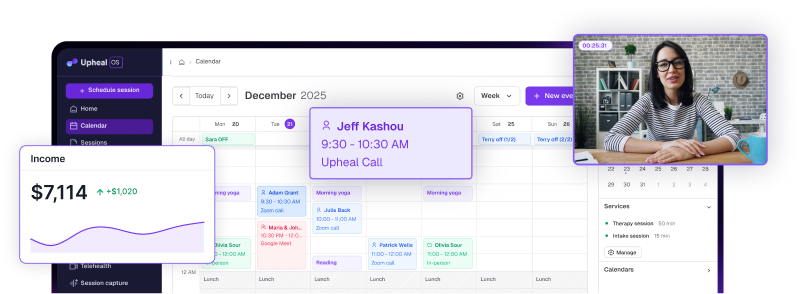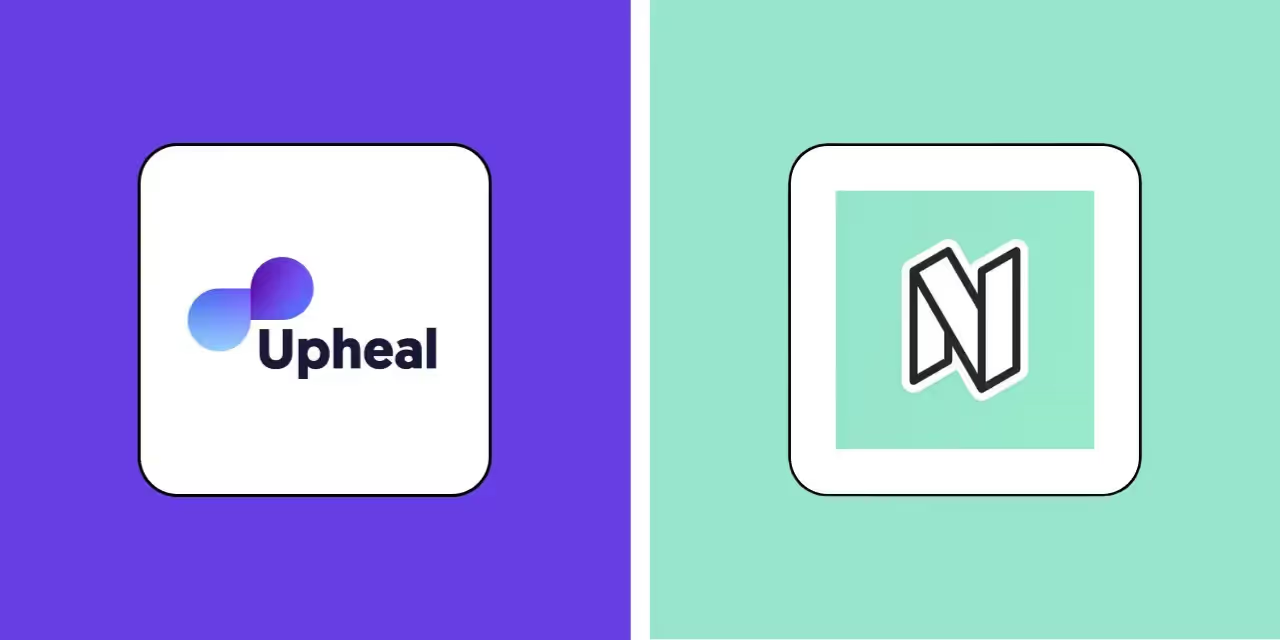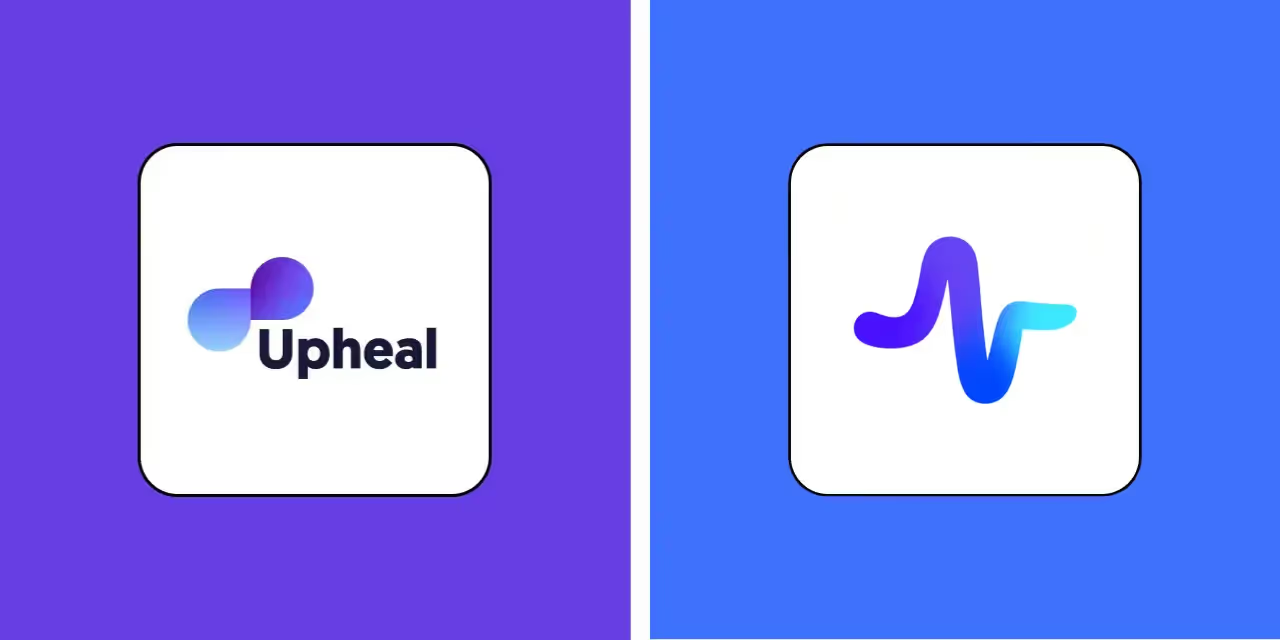Upheal vs Blueprint: Which Privacy-Focused Therapy Platform Is Best for You?
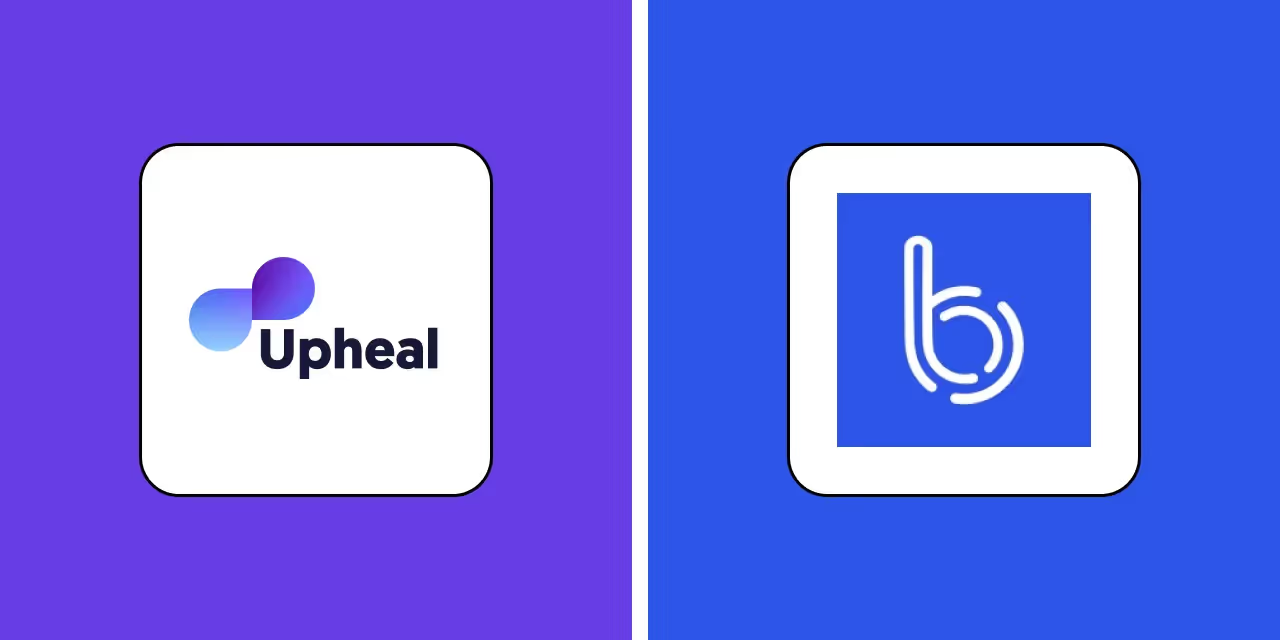
Upheal vs Blueprint: A privacy-first comparison for therapists
When therapists search for AI-powered documentation tools, they often find themselves caught between efficiency and ethics.
The question isn't just "Will this save me time?" but "Can I trust this with my clients' most vulnerable moments?"
Both Upheal and Blueprint serve mental health professionals, but they represent fundamentally different philosophies about privacy, clinical depth, and the sacred nature of therapeutic work.
This comparison examines the critical differences that matter most to mental health professionals: how these platforms protect client confidentiality, their approach to clinical insights versus documentation, and how they handle the ethical complexities unique to our field.
Key differences between Upheal and Blueprint
Privacy-first design vs. traditional documentation approach
Upheal was built with privacy as its foundation, requiring explicit opt-in consent from clients before any data is used for AI training. This means your clients' most vulnerable disclosures are never used to improve the system unless you actively choose to participate.
Blueprint focuses on creating accurate documentation quickly. That requires that more data be available to train their AI tools. Their privacy policy is slightly less restrictive and specific than Upheal when it comes to what session data is used, and how.
The information in the table above is current as of July 2025. It will be updated quarterly to reflect any recent improvements to Blueprint’s privacy policy as they catch up to Upheal.
Flexible data retention vs. automatic deletion
While both platforms prioritize security, their approaches differ significantly. Upheal gives therapists control over data retention — you can choose to keep recordings for clinical review, supervision, or training purposes, or have them automatically deleted.
Blueprint automatically deletes all recordings after transcription, which provides strong security but may not suit therapists who want to review sessions for professional development or supervision.
Multi-language accessibility vs. English-focused practice
Upheal captures therapy sessions in eight languages (English, Spanish, Portuguese, German, French, Italian, Mandarin, and Hindi), supporting more culturally responsive care.
Blueprint operates primarily in English, which may limit its usefulness for therapists working in multilingual practices or serving immigrant communities.
Professional development focus vs. efficiency optimization
Upheal positions itself as a tool for clinical growth, offering analytics and insights that help therapists develop their skills and understand their practice patterns.
Blueprint focuses more on efficiency and accuracy, with their website celebrating how few clinicians edit its progress notes.
What therapists think about Upheal and Blueprint
The therapeutic community's response reveals a deep appreciation for platforms that understand the complexity of clinical work.
"I really like how easy Upheal is to use and that it allows therapists to turn off opting in to training the LLM." - TS
When comparing platforms comprehensively, therapists consistently highlight Upheal's unique position:
"Between the four tools currently available to help private practice therapists streamline their documentation — AutoNotes, Blueprint, Mentalyc, and Upheal — Upheal comes out as the winner in terms of easing the burden of documentation and providing additional session insights that may be helpful for the therapist." - Hannah Weisman, PhD.
Clinical sophistication matters deeply to mental health professionals:
“Upheal offers many features that other AI clinical note takers do not. The analytics set Upheal apart, the formatting of their notes with some customizability, and more. However, the feature that, to me, sets Upheal apart from other AI clinical note takers is how well it detects who is the client and who is the clinician," - Daniel Elliott
The depth of clinical insight resonates with practitioners seeking professional growth. The platform's ability to support both documentation and clinical development appeals to therapists at all career stages:
"As a graduate student and a care coordinator, I had the chance to test Upheal, and I am truly impressed. It makes documentation so much more efficient and captures key information during sessions, streamlining the process of note-taking.” - Reem Alkaabi
Choosing the right platform for your practice
The choice between Upheal and Blueprint ultimately reflects your vision of how technology should support clinical work. Both platforms serve mental health professionals well, but they embody different philosophies about the relationship between efficiency and insight.
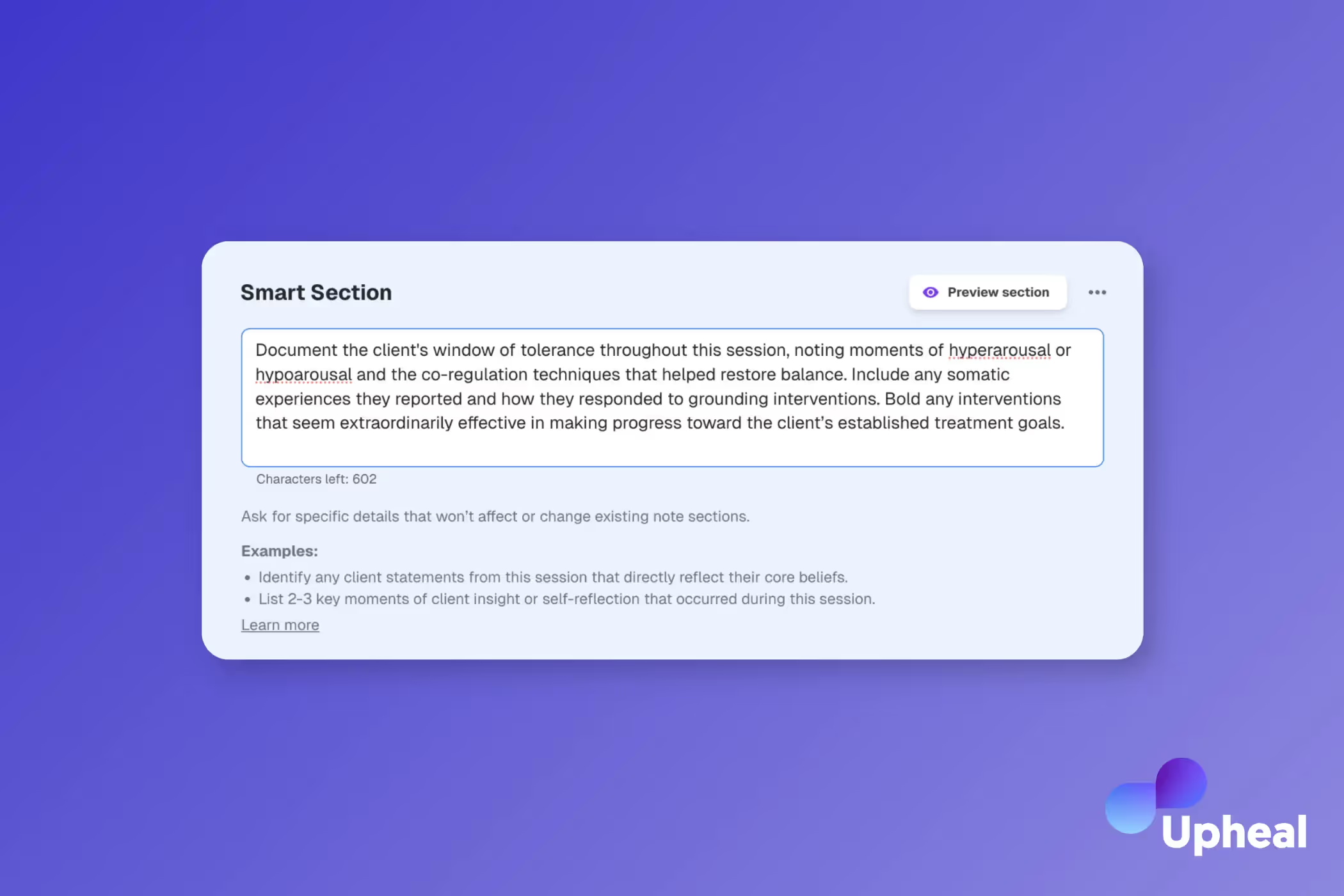
Blueprint excels for therapists who want streamlined documentation with strong treatment planning integration. Its focus on evidence-based interventions and clinical tools appeals to practitioners who value structured approaches to therapy. The platform's emphasis on connecting treatment goals to progress notes creates clear documentation trails that satisfy regulatory requirements and support clinical accountability.
Upheal represents a different approach entirely — one that views AI as a clinical supervisor and professional development partner. Its sophisticated analytics help therapists understand their work more deeply, while its privacy-first design respects the sacred nature of therapeutic relationships. The platform's ability to provide insights into therapeutic dynamics and session patterns appeals to clinicians who want to grow professionally while managing their documentation burden.
The information in the table above is current as of June 2025.
For privacy-conscious practitioners, the differences are meaningful. Upheal's explicit consent model and granular privacy controls reflect a deep understanding of therapeutic ethics. Blueprint's more traditional approach to data handling may suit therapists who prefer standard healthcare privacy practices without additional complexity.
Consider your long-term professional goals. If you're seeking a tool that helps you understand your clinical work more deeply while handling documentation efficiently, Upheal's supervisory insights and professional development focus offer unique value. If you prefer a more straightforward documentation solution with strong clinical tool integration, Blueprint's approach may feel more familiar and comfortable.
The question isn't just about today's efficiency — it's about partnering with a platform that aligns with your values about client privacy, professional growth, and the therapeutic relationship. Both tools can serve you well, but Upheal's commitment to clinical insight, transparent privacy practices, and professional development makes it particularly compelling for therapists who view their documentation tool as a partner in providing excellent care.
